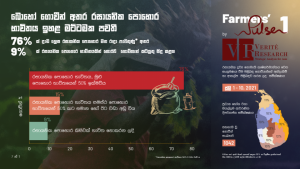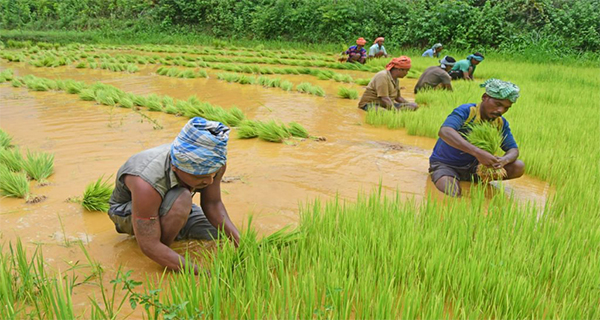A recent survey has revealed that the confidence of Sri Lankan farmers in the knowledge required to transition to chemical-free agriculture is very low.
According to Veritas Research, only 20% of the farmers surveyed said they had the knowledge of suitable organic fertilizer and how to apply it to their crops.
President Gotabhaya Rajapaksa stated on April 22, 2021 that the import of chemical fertilizers to Sri Lanka will be banned.
Veritas Research has conducted a telephone survey called “Farmers Pulse” to ask farmers for their views on the policy and its intended impact.
According to Veritas Research, this is the first time that farmers’ views on this policy have been presented statistically, representing island-wide results.
Highlights
More than 90% of the farmers surveyed said they currently use chemical fertilizers.
If chemical fertilizers are not used, most of them (85%) expect a big reduction in their yield. (Expected reduction average is 47%).
Nearly two-thirds of farmers say they support the government’s vision to transform Sri Lanka from chemical-free farming.
But Verite Research says it will take more than a year for the conversion of nearly 80% of the farmers who have supported it.
Basic insights gained
The highest use of chemical fertilizers has been reported from paddy farmers with a percentage of 94%.
The second highest use of chemical fertilizers was reported from tea and rubber growers. That percentage is 89%.
Veritas Research further points out that there is a very low level of confidence in the knowledge required to transition to chemical-free agriculture.
“Only 20% of farmers claim to have the knowledge of suitable organic fertilizer and how to apply it to their crops.”
According to Veritas Research, farmers make three main demands on the government.
(1) Advising and guidance on organic fertilizers
(2) Provide sufficient time for gradual transition
(3) Supply of standardized organic alternatives.
Veritas Research conducted the telephone survey in July 2021, involving 1,042 farmers through the Vanguard Survey, a specialized research institute in Sri Lanka. “The survey sample consisted of commercially cultivating farmers and was evenly distributed across nine provinces.”
Also, only farmers who cultivate more than half an acre of land and have been engaged in farming for more than 3 years have been selected for the survey. The survey was conducted among farmers who grow paddy, fruits, vegetables, coconut, tea, minor export crops (spices) and cereals, Veritas Research said.

